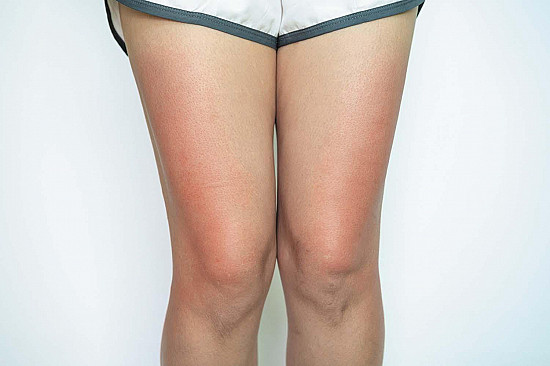Could tea tree oil help treat acne or athlete’s foot?
- Reviewed by Rebecca Gaffney, MD, Editorial Advisory Board Member, Harvard Health Publishing

Tea tree oil is a popular natural remedy found in many skin care and hair products. It has been used for centuries for its potential antibacterial and antifungal properties. But does the research support its effectiveness for conditions like acne, athlete’s foot, and nail fungus?
What is tea tree oil?
Tea tree oil comes from the leaves of the Melaleuca alternifolia tree, which is native to Australia. It contains over 100 different compounds that may have antibacterial, antifungal, and anti-inflammatory properties. Because of these potential benefits, tea tree oil is commonly used in skin care, hair care, and home remedies for various conditions.
Tea tree oil is available over the counter for purchase as a pure essential oil (100%) or diluted to 5% to 15% as an active ingredient in various creams, gels, and cleansers.
Potential benefits of tea tree oil: What the research shows
Tea tree oil has been used as a natural remedy to treat minor wounds, insect bites, acne, nail fungus, and athlete’s foot for many years. Research shows that tea tree oil may work by damaging bacterial and fungal cell walls, interfering with their growth and replication.
While studies suggest it has antimicrobial, antifungal, and anti-inflammatory properties, more human research is needed to fully understand its benefits and safety. Following, we explore what existing studies reveal about its potential uses.
Acne
Tea tree oil is often included in acne treatments because of its potential antibacterial and anti-inflammatory properties. Research suggests that it may help reduce mild acne by decreasing inflammation and targeting acne-causing bacteria.
There have been numerous human studies evaluating tea tree oil in the treatment of acne demonstrating promising results. However, variations in study design make it difficult to draw definitive conclusions about its effectiveness and safety.
In one comparative study, tea tree oil was not found to be more effective than benzoyl peroxide, a common acne treatment, but it did result in fewer side effects like dryness and irritation.
According to the American Academy of Dermatology's 2024 guidelines, there’s insufficient evidence to recommend topical tea tree oil for the treatment of acne. That said, its generally mild effects on the skin make it a potential option for those seeking a more natural approach, ideally as a complementary rather than primary treatment.
Athlete’s foot
Athlete’s foot, a fungal infection that affects the skin on the feet, can cause itching, redness, and peeling. Some studies suggest that tea tree oil may help reduce symptoms and fight the fungus responsible for athlete’s foot.
A 2002 study found that tea tree oil solutions at 25% and 50% worked better than a placebo treatment with no active ingredients in relieving athlete’s foot between the toes. The infection cleared in 64% of people who used tea tree oil, compared to 31% of those using the inactive treatment.
Nail fungus
Nail fungus is a common condition that can make nails thick, discolored, and brittle.
Tea tree oil is one of the most studied natural remedies for nail fungus, but research has been inconsistent. Many studies lacked control groups or did not compare tea tree oil to approved antifungal treatments. Differences in study methods and varying success rates make it difficult to draw firm conclusions about its effectiveness.
Still, some studies suggest that tea tree oil, when applied regularly, may help improve the appearance of affected nails. A 1994 study found tea tree oil to be as effective as clotrimazole, a common antifungal cream. In contrast, a 1999 study showed that a combination cream containing tea tree oil and the antifungal medication butenafine hydrochloride cured nail fungus in 80% of participants, while tea tree oil alone had no effect.
A 2024 laboratory study found that tea tree oil could kill certain fungal strains in a test tube. But its real-world effects remain unclear, and more human studies are needed to confirm its long-term benefits, safety, and effectiveness.
Using tea tree oil safely
Tea tree oil is generally safe for topical use at concentrations under 15%, but it should not be ingested or used in the eyes, ears, or through inhalation. It is not recommended for children under 12, pregnant or breastfeeding individuals, or those with allergies to its components.
Dr. Rebecca Gaffney, a board-certified dermatologist and instructor in dermatology at Harvard Medical School, notes that while tea tree oil may have anti-inflammatory properties that could help treat various skin conditions, "there is not sufficient evidence regarding its safety and efficacy." She emphasizes the importance of using it cautiously, as "high concentrations and improper storage of tea tree oil can lead to irritation and rash."
While tea tree oil is generally safe for most people, it should always be used with caution. Here are some important safety tips:
- Dilute before use. Tea tree oil is very strong and can cause skin irritation if applied directly. It should be diluted with a carrier oil, such as coconut or olive oil, before applying to the skin. (Or purchase diluted tea tree oil.)
- Avoid ingestion. Tea tree oil should never be swallowed. It can be toxic if ingested.
- Patch test first. Before using tea tree oil on a larger area, apply a small amount to a patch of skin to check for any allergic reactions.
- Consult a doctor. If you have sensitive skin, allergies, or a medical condition, talk to your doctor before using tea tree oil.
About the Author

Jennifer Fisher, MMSc, PA-C, Health Writer
About the Reviewer

Rebecca Gaffney, MD, Editorial Advisory Board Member, Harvard Health Publishing
Disclaimer:
As a service to our readers, Harvard Health Publishing provides access to our library of archived content. Please note the date of last review or update on all articles.
No content on this site, regardless of date, should ever be used as a substitute for direct medical advice from your doctor or other qualified clinician.















